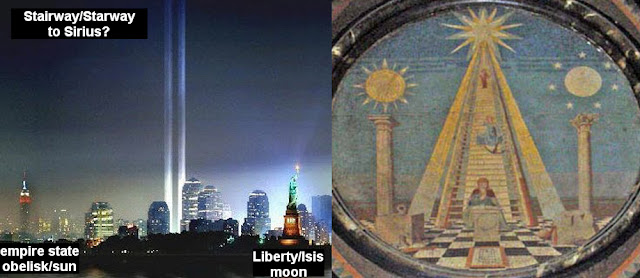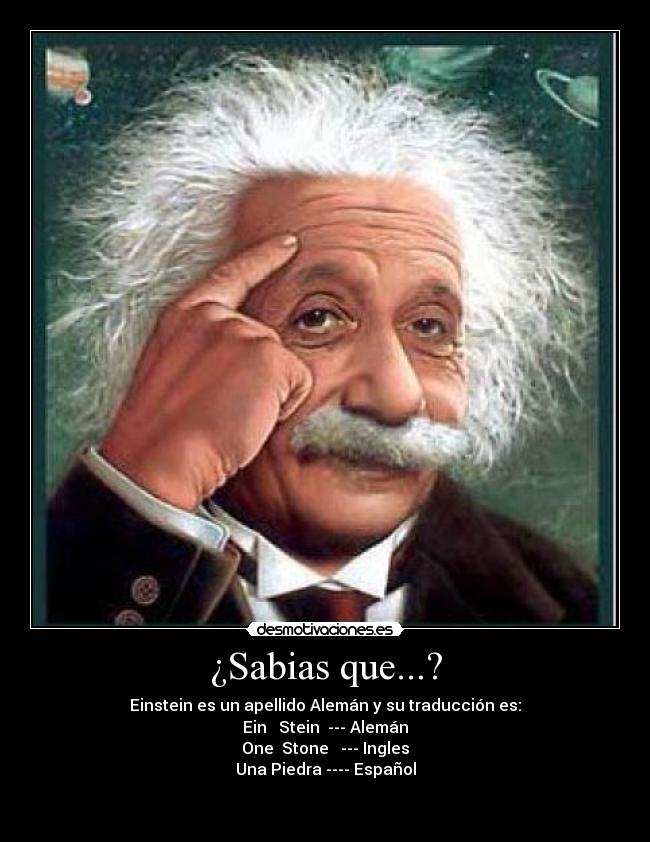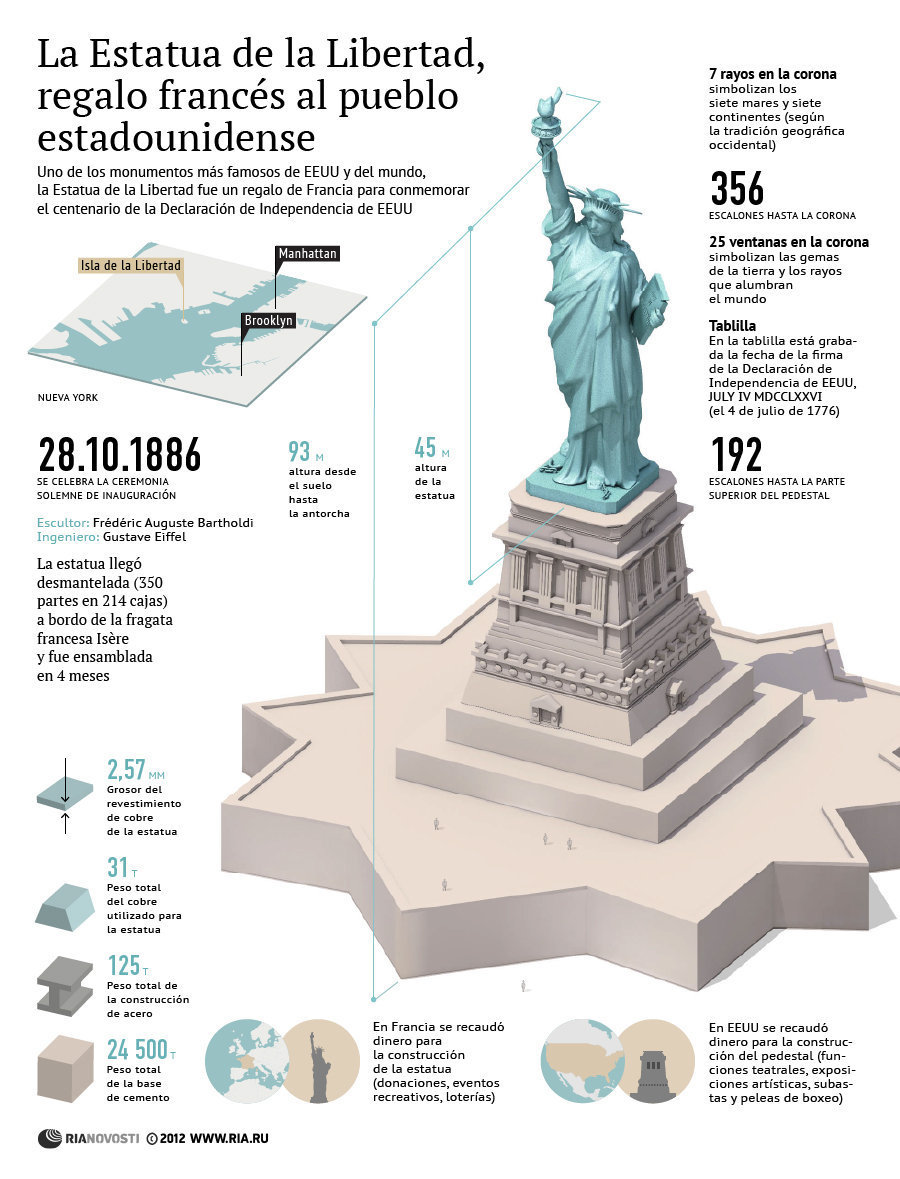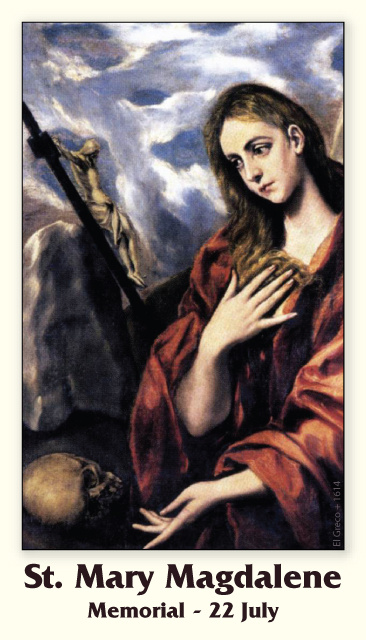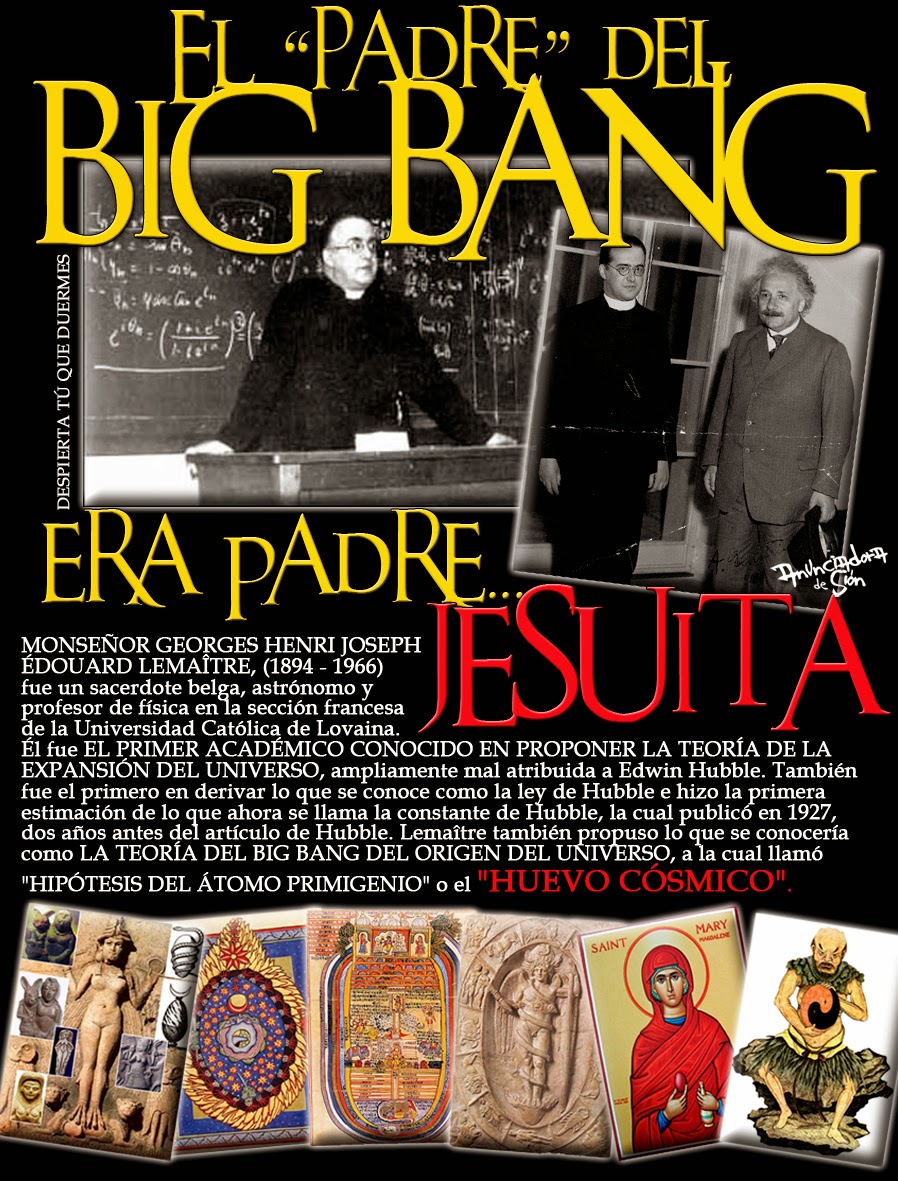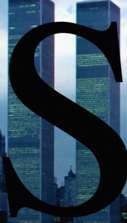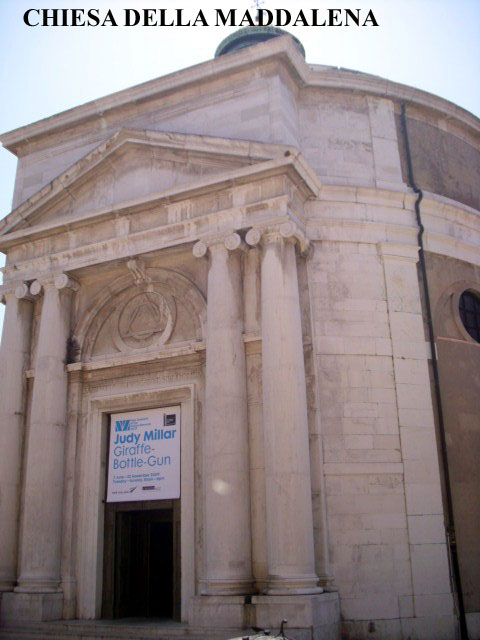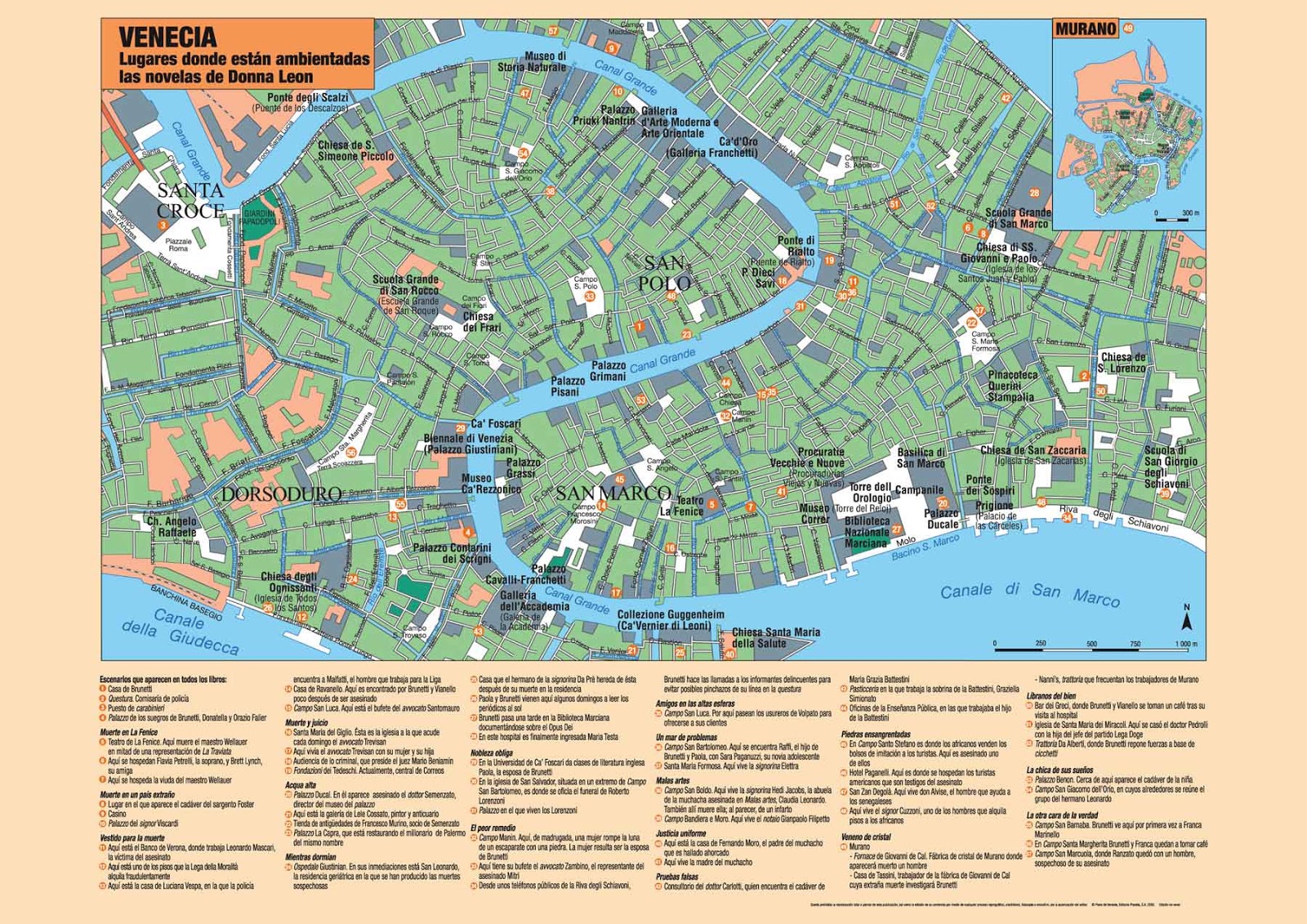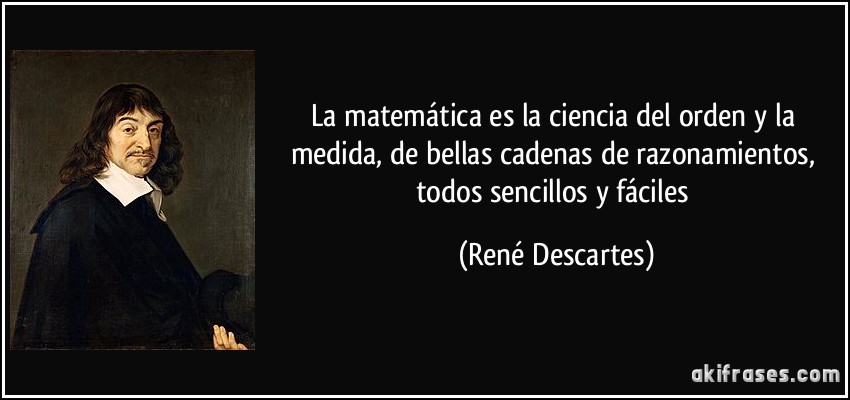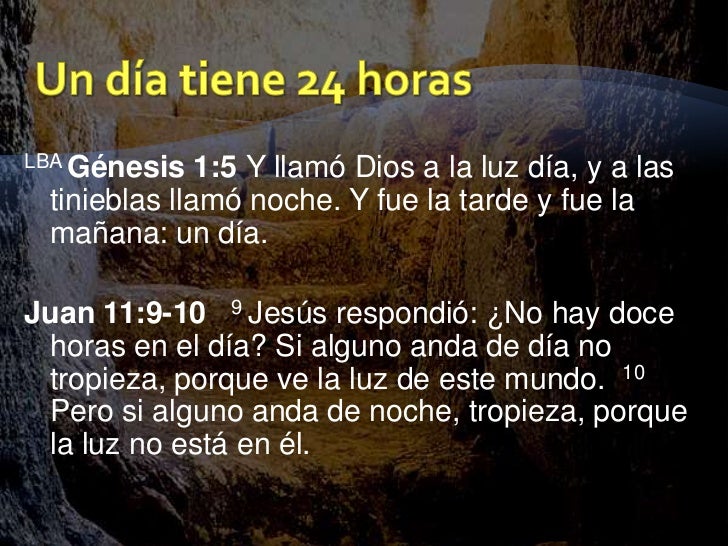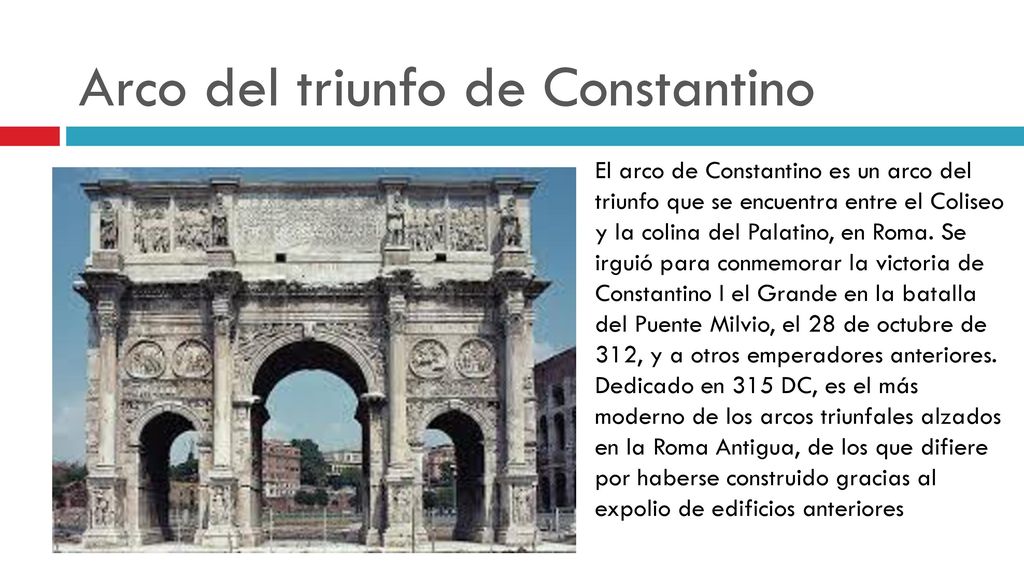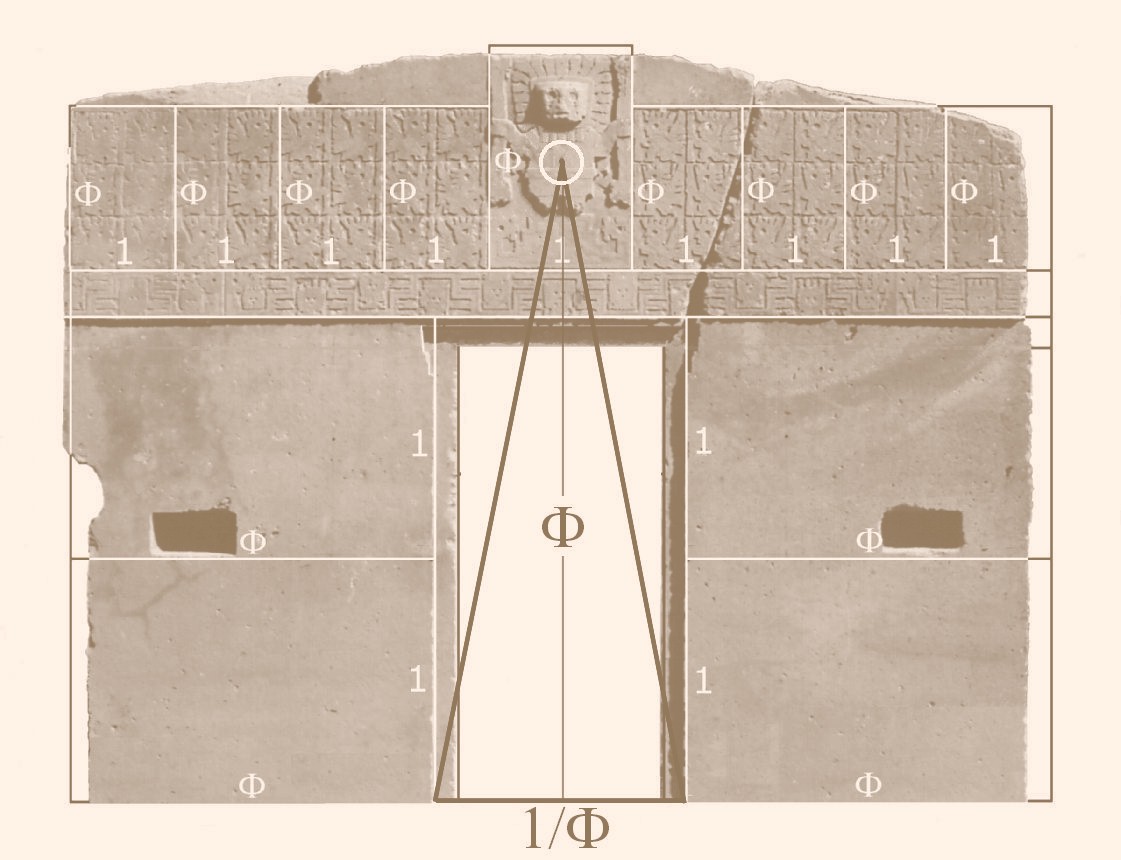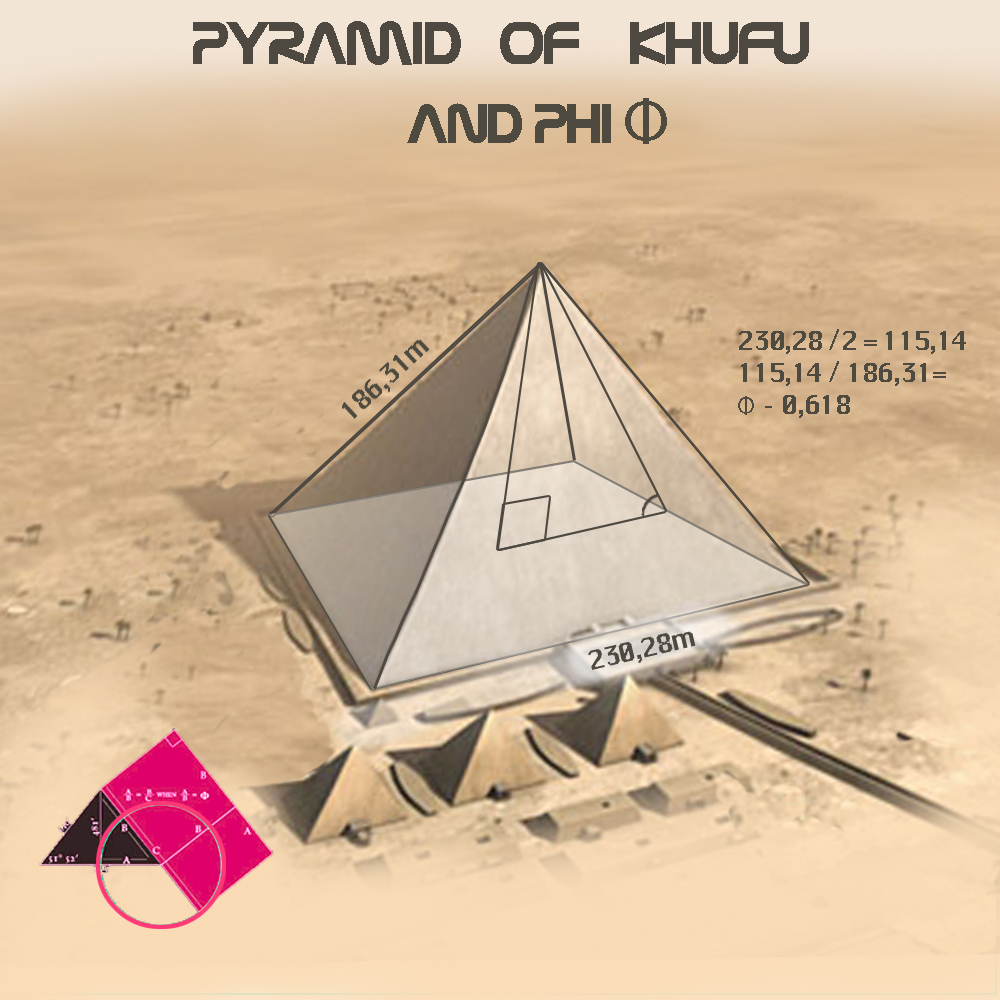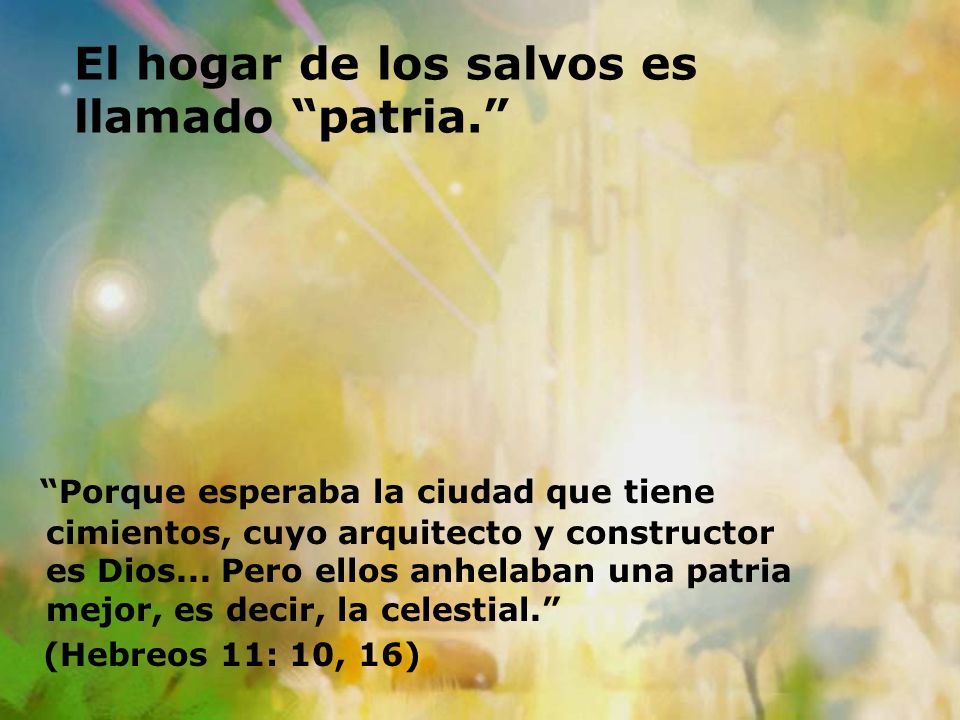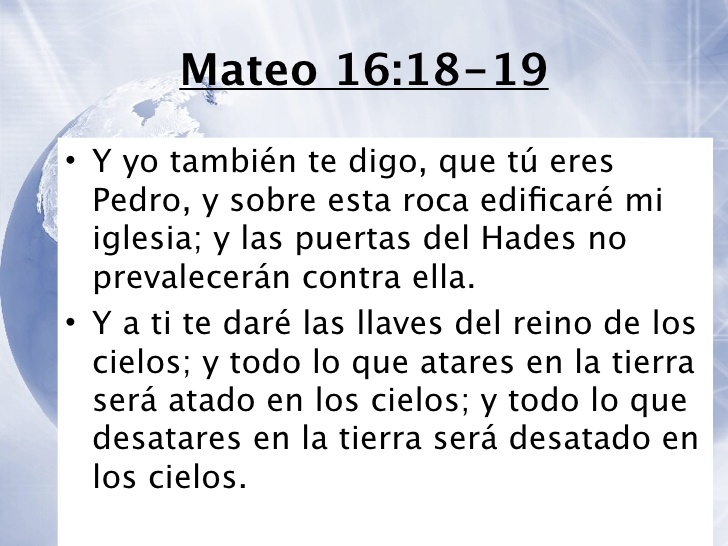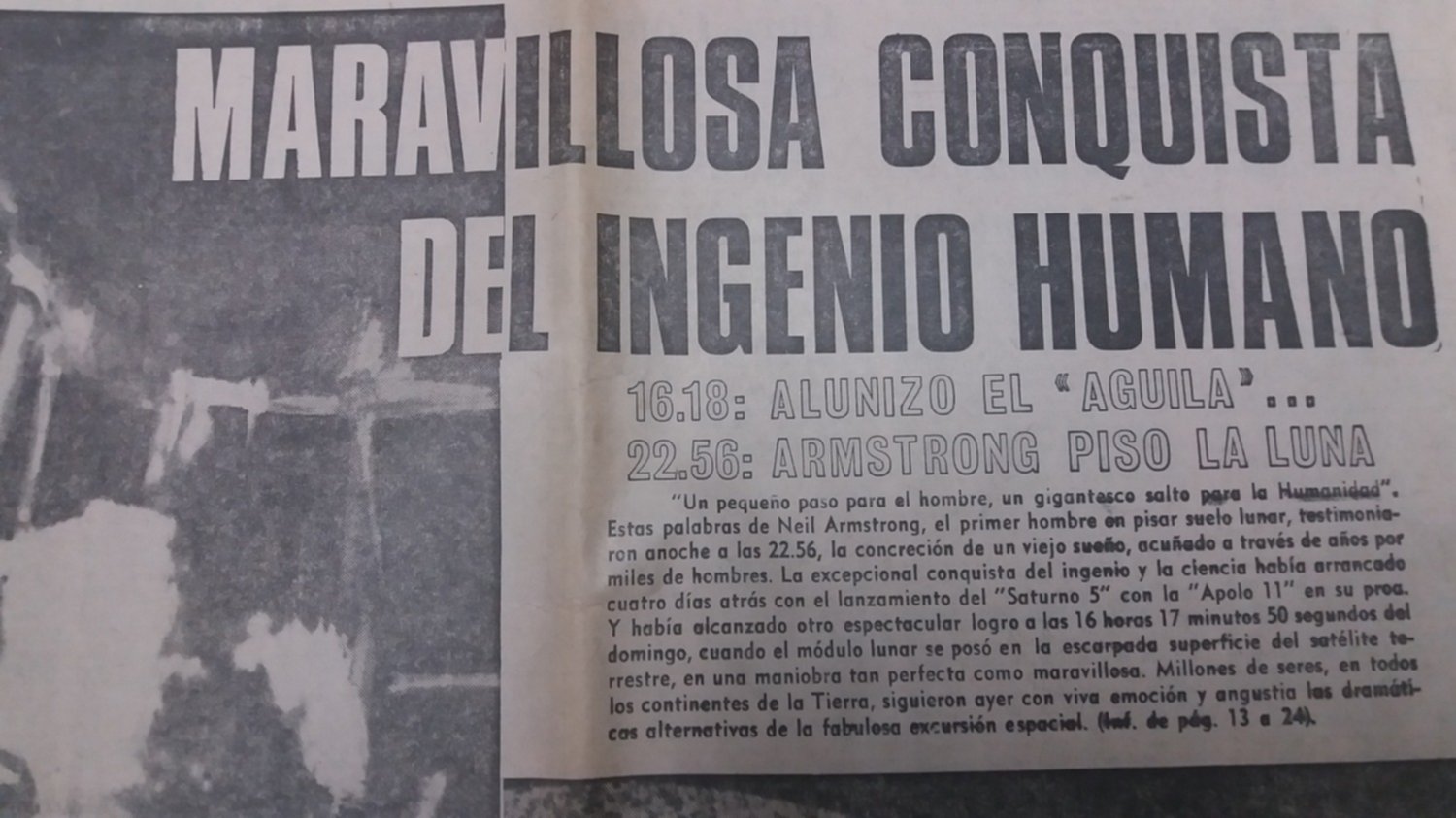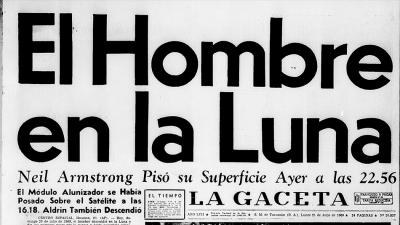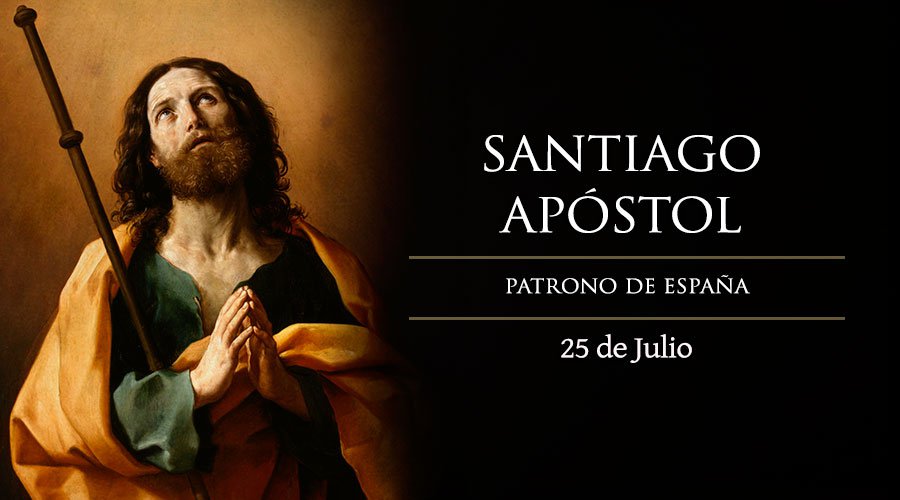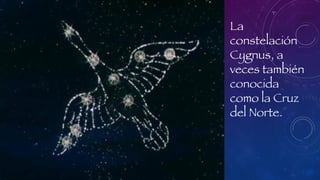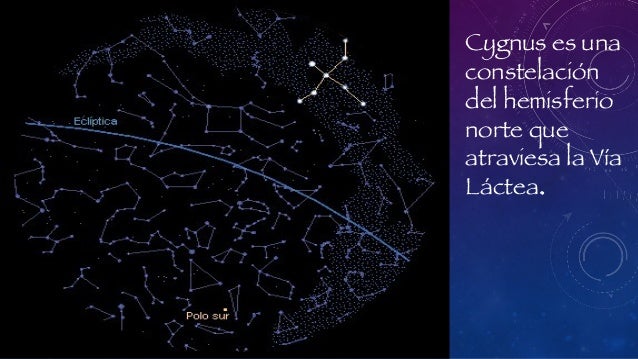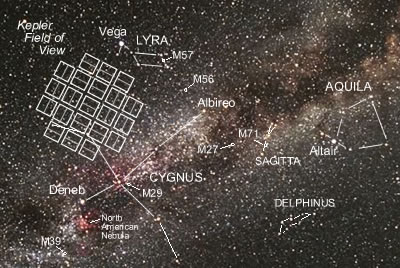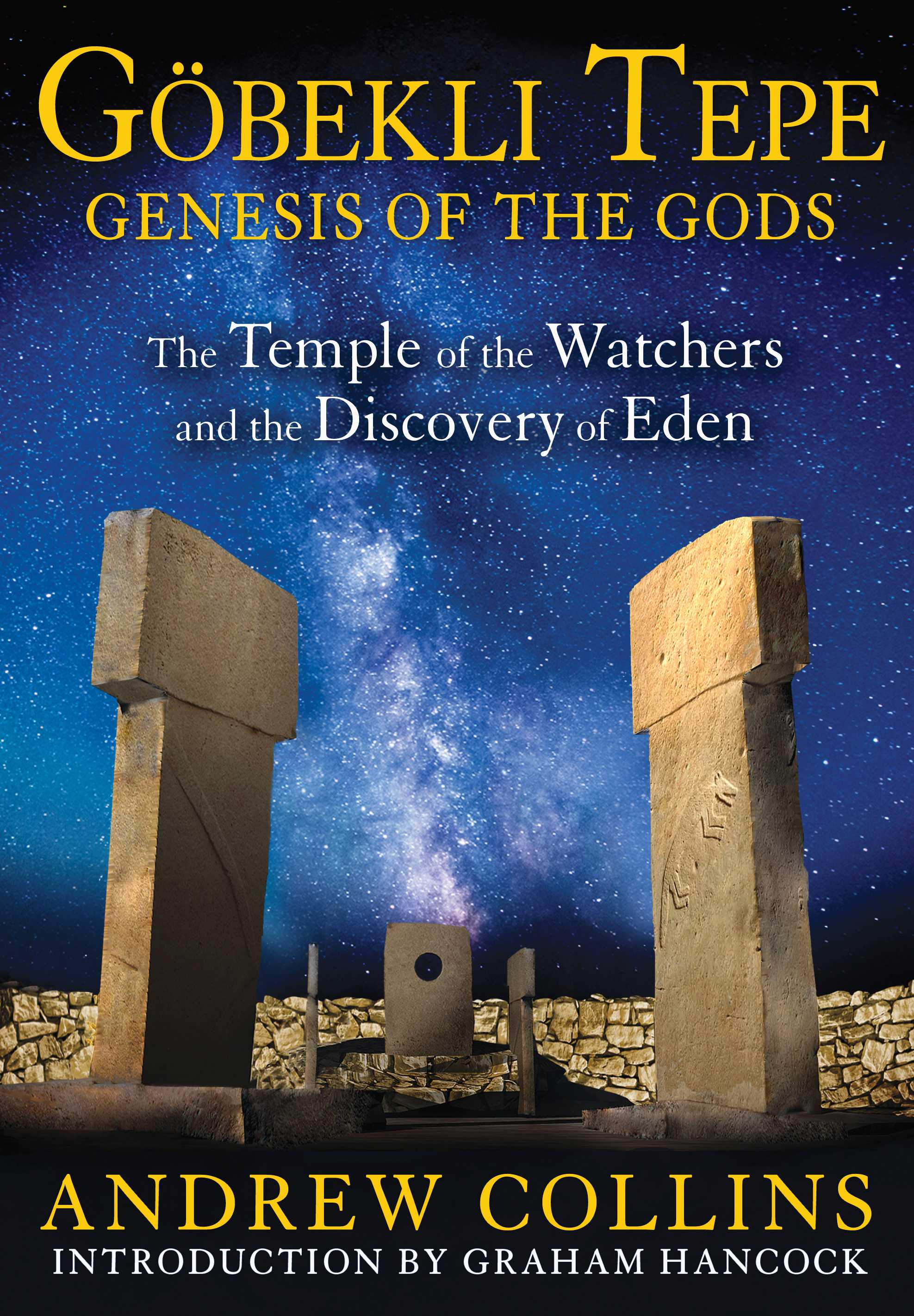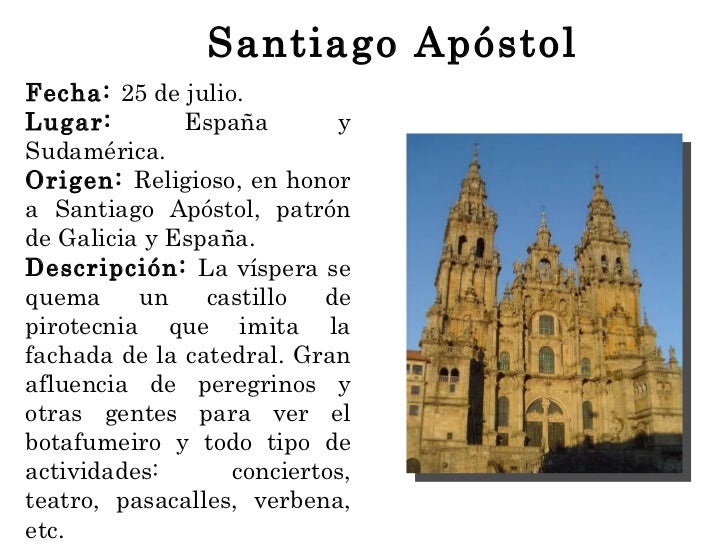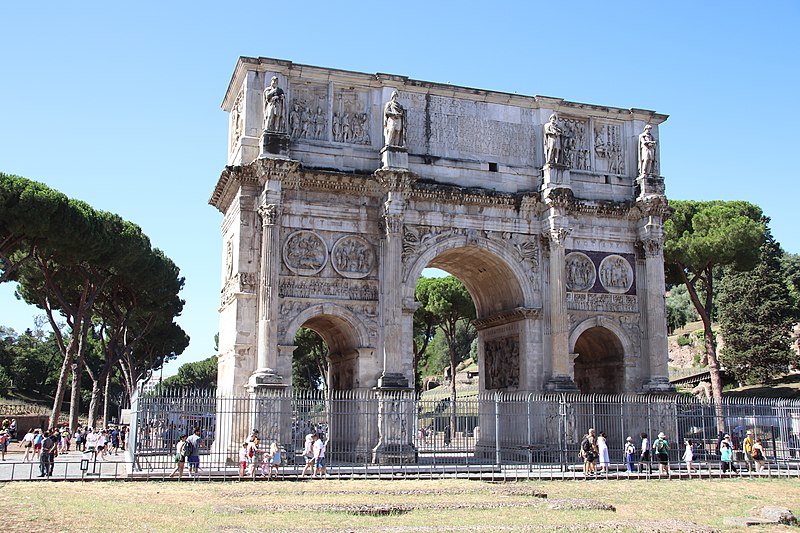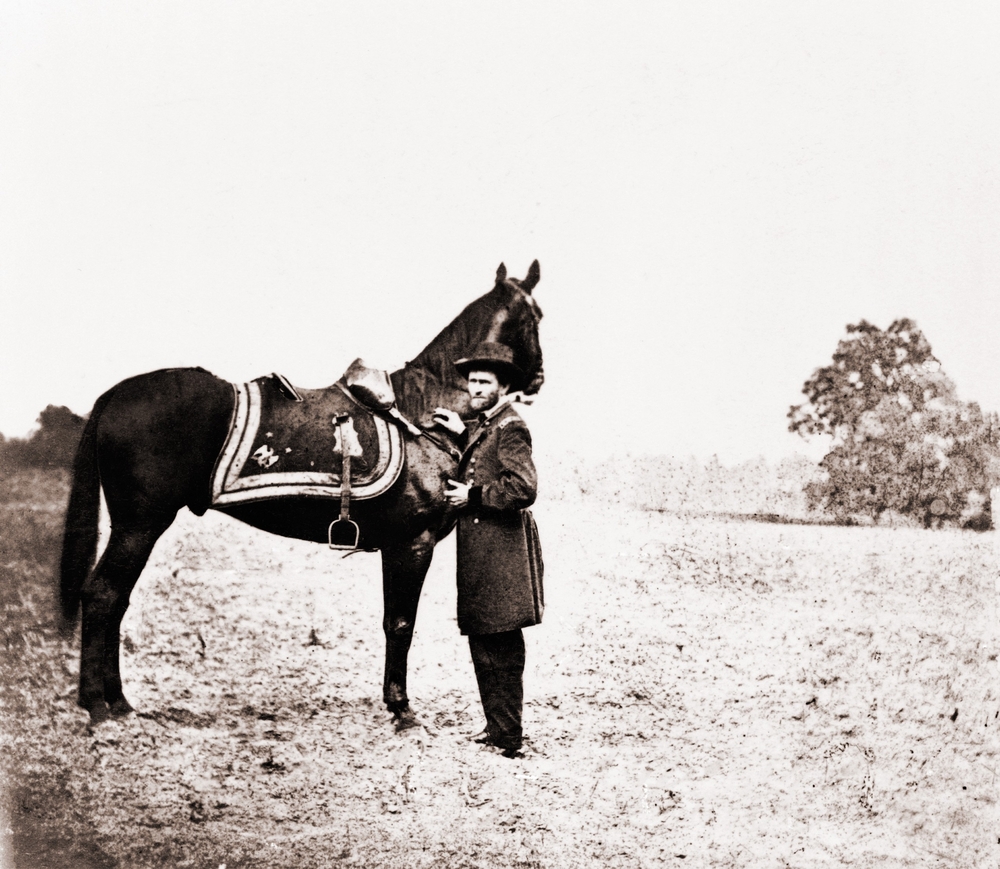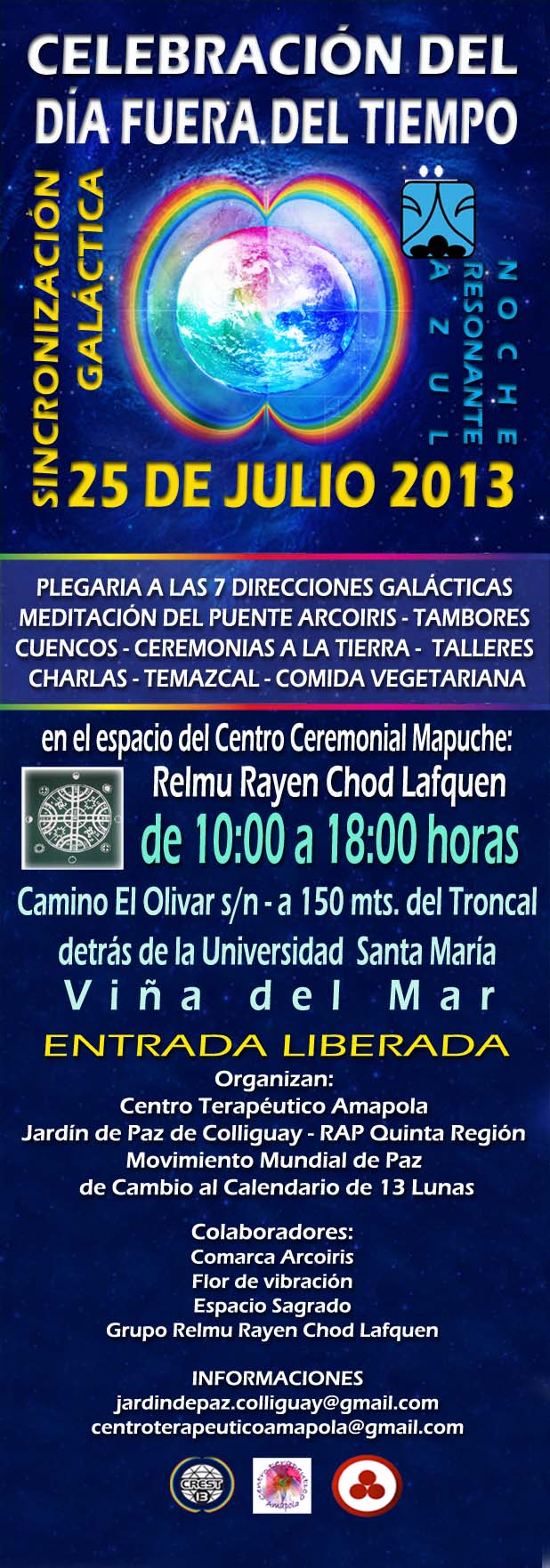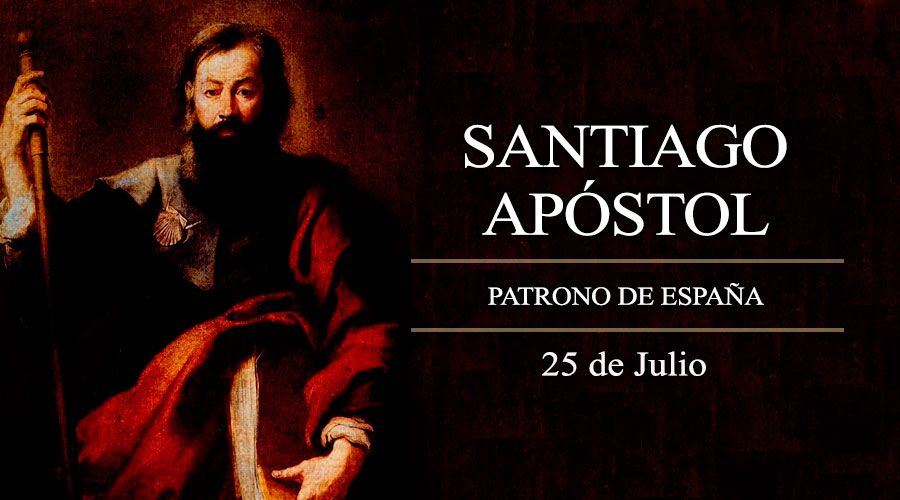|
Réponse |
Message 1 de 27 de ce thème |
|
Omphale
Twelve Tribe Nations
In the most ancient times nations divided themselves into twelve tribes:
“All over the world in countries as far apart as China, Ireland, Iceland, and Madagascar are records and traditions of whole nations and their territories being divided into twelve tribes and twelve regions, each tribe and its sector of land corresponding to one of the twelve signs of the zodiac and to one of the twelve months in the year.” -Twelve Tribe Nations: Sacred Number and the Golden Age by John Michell and Christine Rhone
Mirroring the 12-part division of stars on the ground flows from the ancient Hermetic wisdom:
As Above So Below
Ancient Greece
In the archaic period of Greece tribes formed a series of Amphictyonic (ἀμφικτυονία) Leagues meaning a “league of nations.” Examples include the Delian League, the Delphic League, and the Ionian League each of which formed what is called a Dodecapolis, or confederation of twelve settlements.
The Twelve Olympians probably arose from a Dodecapolis.
Every twelve-part division of land had a center point and this center was traditionally marked with a stone. Here is the omphalos stone from Delphi. It was originally topped by two golden eagles because Zeus sent out two eagles to fly across the world to meet at its center, the “navel” of the world.

Image courtesy Юкатан under the Creative Commons Attribution-Share Alike 3.0 Unported license.
On a side note, just as the Ancient Olympics were revived in Athens in 1896, a “League of Nations” was revived after World War 1.

The League of Nations was the precursor to the United Nations.
A Modern World Omphalos
The Millennium Dome (also known as the O2 Arena) will be a major venue in the London 2012 Olympics. The structure’s twelve masts correspond to the signs of the zodiac and the twelve months in the year. The dome’s diameter of 365m corresponds to the number of days in a year and its 52m height corresponds to the number of weeks in a year.

Image courtesy Debot under the Creative Commons Attribution-Share Alike 2.5 Generic license.
The center of the Millennium Dome’s is very close to being on the Prime Meridian but is not quite on the line. The exact longitude of this modern world omphalos is 0°0′11.22″E
The numerology of the longitude is as follows: 11 + (11 + 11) = 33. See my posts on Repeating Ones and 33.
Billions of people will focus their psychic energy on this spot next summer.
The official logo of the 2012 Olympics is an example of a subliminal secret in plain sight that your your left brain is probably unaware of (top) but your right brain understands subconsciously (bottom):

Iran has threatened to boycott the London 2012 Olympics unless the organisers replace the official logo, which Tehran claims spells out the word “Zion”. -Source
The Isle of Dogs
The Millennium Dome is on the Isle of Dogs, which has been a peninsula for hundreds of years. Sirius is known as the dog star because it is in the constellation Canis Major. The goddess Artemis is often depicted with a dog. Artemis is a Greek version of Isis, which makes sense because Sirius is the star of Isis.

Image courtesy of Stellarium open source software; Constellation art by Johan Meuris
Sirius Sattelite Radio uses a dog with a star for its eye as its symbolic logo recalling Isis to those who have eyes to see and ears to hear.

Fair use of corporate logo
Sardis
The French writer Jean Richer identified the oldest Amphictyonic League in Sardis, Lydia which is in today’s western Turkey.
When you hear the terms the Near East, the Middle East, the Far East, the West, the South, and the North where do you suppose the origin point of all these directions is? Nothing I’ve read has ever answered this question and it has bothered me since first taking history courses in college.
Sardis is the omphalos. The ancient navel of the world.

The word omphalos is etymologically connected to Queen Omphale, mythological ruler of Lydia.

Hercules and Omphale (detail) by Tischbein, Johann Heinrich, der Ältere (1754)
Incidentally I’m not sure if it was Tischbein’s intent but one exposed breast is symbolic of Isis.
In Queen Omphale’s best-known myth, she is the master of the hero Heracles during a year of required servitude, a scenario that offered writers and artists opportunities to explore gender roles and erotic themes.
Paris – Sardis
Drawing a path from Sardis to I.M. Pei’s Louvre Pyramid we see that the axis bisects the Louvre and is aligned perfectly with the entrance to the world’s most visited museum.
The Louvre Museum has 555,000 sq ft in the palace complex devoted to public exhibition. -Source

This is especially amazing because the Louvre Palace you see today was started in the 16th century and added to by almost every subsequent French monarch. The alignment goes right over the center of the Sun King’s Cour Carrée (Square Court) addition he created before moving to Versailles.

Image courtesy King of Hearts under the Creative Commons Attribution-Share Alike 3.0 Unported license.
The path from Sardis to the Louvre Pyramid passes directly over the tip of the July Column in the Place de la Bastille. The golden boy atop the July Column is the Greek Hermes, author of the motto “As Above, So Below” in his earlier incarnation as the Egyptian Thoth.

The path from Sardis goes to Paris along the direction of Virgo as identified by John Michell and Christine Rhone in Twelve Tribe Nations. The first sign of the zodiac (Aries) is aligned toward the rising sun in the east.

Paris
It is interesting that the path is in the Virgo (Isis) direction because of what Paris is all about (see my Paris episodes). Graham Hancock and Robert Bauval show in their book Talisman how the word Paris comes from Pharia-Isis. Pharia or Pharos in Greek is the location of the Lighthouse of Alexandria, a center of Isis worship in the the ancient Mediterranean.
The Notre Dame (English: Our Lady) cathedral was very likely built over a Druidic Temple of Isis.
The historical axis is offset 6 degrees from the axis running through Pei’s pyramids (both upward and downward pointing) through the July Column all the way to the ancient omphalos at Sardis.
If you watched my Paris videos you’ll recall that this 6 degree bend matches the Temple of Luxor’s bend whose very obelisk is at the center of the 86,400 square meter Place de la Concorde.
Also consider the fact that the Champs-Élysées (the historical axis of Paris) is aligned to the heliacal rising of Sirius, the phenomenon the ancient Egyptians based their calendar on.
The Champs-Élysées or “La plus belle avenue du monde” as it is known in French is one of the most beautiful streets in the world with rents as high as US$1.2 million a year for 1,000 square feet of space. -Source

Image courtesy Palagret under the Creative Commons Attribution-Share Alike 2.5 Generic license.
The name Champs-Élysées is French for Elysian Fields, the place of the blessed dead in Greek mythology. The Elysian Fields are related to the Eleusinian Mysteries which, of all the mysteries celebrated in ancient times, were held to be the ones of greatest importance.
The participants in these mysteries drank a mixture called Kykeon made mainly of water, barley and “naturally occurring substances” that some scholars believe were entheogens.

Dimethyltryptamine, see my Snowflake and the Flower post
For almost 3000 years people “consistently experienced revelatory states during the culminating ceremony of the Eleusinian Mysteries.” -Source

Phryne at the Poseidonia in Eleusis by Siemiradzki
But where does this naturally occurring substance come from?
The most likely candidate for the DMT containing plant, of which there are many in nature, would be a species of Acacia. -Metzner, Ralph. “The Reunification of the Sacred and the natural”. Eleusis Volume VIII, 1997. pp. 3-13
That’s a hell of a secret in plain sight I’d say (pardon the pun, the mysteries are about helping Demeter find her daughter Persephone in Hades).
According to Diodorus Siculus, the Cretans professed that they received the ‘mysteries’ from the Egyptians, and that they passed them on to the Greeks. Eleusia (Eleusis) was the home of the earth-mother Demeter, but she has older origins that can be seen in the Egyptian mythologies…the mysteries of Isis were the same as those of Demeter and that the mysteries of Osiris were the same as Dionysus. -Source
Acacia in the Osiris Myth
Osiris was tricked by his jealous brother Set, cut into 14 pieces, sealed in a chest and sent down the Nile. The sea carried the chest to Byblos where it lodged in an acacia tree. The tree grew around the chest encasing it and the remains of the god Osiris were preserved inside.

Image courtesy Stan Shebs under the Creative Commons Attribution-Share Alike 3.0 Unported license.
The King of Byblos cut down the tree and turned it into a column in his palace. When Isis learned of the fate of her brother-husband she set out in search of his body. When Isis identified where Osiris was she worked in the king’s court nursing his children. After a time she received the column as her pay. In the tree trunk was the body of Osiris which she magically reassembled and sang back to life with a song.
Resurrection is at the heart of the Eleusinian Mysteries and perhaps is the hope of those who find themselves in the Elysian Fields.
What really went on in the mysteries was kept a secret for almost 3000 years and is now lost to the sands of time. The mysteries were suppressed and the pagan shrines desecrated when Christianity became the official religion of the Roman Empire in the 4th century AD.
Perhaps it is high time we bring them back?
©2012 SIPS Productions Inc. – All Rights Reserved.
|
|
|
|
Réponse |
Message 13 de 27 de ce thème |
|
|
|
|
Réponse |
Message 14 de 27 de ce thème |
|
| De: Goncho (Mensaje original) |
Enviado: 30/04/2018 07:39 |
 Primer Primer  Anterior 2 a 3 de 3 Siguiente Anterior 2 a 3 de 3 Siguiente  Último Último  |
|
|
| De: Goncho |
Enviado: 30/04/2018 07:42 |
|
CANANEA / CANAN / CAN / PERRO (CONSTELACION DE SIRIO)
BODAS DE CANA
SIRIO ES LA CONSTELACION DEL PERRO/ CAN MAYOR
|
|
|
|
|
|
Réponse |
Message 15 de 27 de ce thème |
|
¿COMO EXPLICAS EL NEXO 911 CON EL DIA DE MARIA MAGDALENA EN EL MARCO A LA INDEPENDENCIA DE EEUU EN FILADELFIA?
11/9/2001-11/9/2005=1461 DIAS
11/9/2005-22/7/2006=315 DIAS
1461+315=1776
EL 4/7/1776=INDEPENDENCIA DE EEUU EN FILADELFIA

En aquel tiempo, respondiendo Jesús, dijo:
Te alabo, Padre, Señor del cielo y de la tierra,
que hayas escondido estas cosas (la Gnosis, la Sabiduría Oculta)
de los sabios (de los eruditos) y de los entendidos, (de los intelectuales)
y las hayas revelado á los niños. (A los Iniciados). Así, Padre, pues que así agradó en tus ojos."
(Mateo 11: 25-26).
EL PATRON KAVALISTICO DE LA INDEPENDENCIA DE LOS ESTADOS UNIDOS ESTA TOTALMENTE INTERRELACIONADO CON LAS BODAS DE CANA, EN EL CONTEXTO A QUE LA MISMA NO FUE SOLAMENTE EN UN TERCER DIA ( JUAN 2:1), SINO QUE TAMBIEN EN UN SEPTIMO DIA (JUAN 1:29,35,42 Y JUAN 2:1). DE ALLI SALE EL MONSTRUSO NUMERO 37.
1776=48*37
666=37*18
37*18=666
37*48=1776 (AÑO DE LA INDEPENDENCIA DE EEUU)
LA MISMA TORRE ES UN SIMBOLO FALICO CON FUERTE CONNOTACION SEXUAL
El mismo dia de JUDAS TADEO, Y EL MISMO DIA DEL EXPERIMENTO FILADELFIA, el 28 de OCTUBRE y el mismo 22 de JULIO, DIA DE MARIA LA MAGDALENA. VIVA FRANCIA, TIERRA DE LA LIBERTAD, LA TIERRA DEL "CODIGO DA VINCI", EN EL 227 ANIVERSARIO DE LA INDEPENDENCIA DE EEUU.
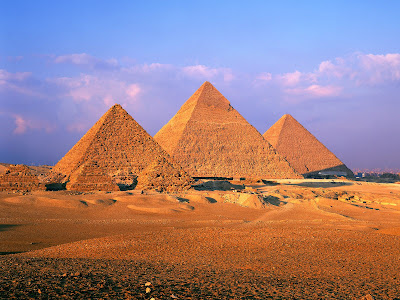 
99. Ezequiel 22:7: Al padre y a la madre despreciaron en ti; al EXTRANJERO trataron con violencia en medio de ti; al huérfano y a la viuda despojaron en ti.

Statue of Liberty
The height of the Statue of Liberty is 111′-1″ from bottom of foot to top of head. The 7 rays on the crown and the 11 points of the base star echo the proportions of the Great Pyramid’s 7:11 height to base proportion. The superb book Talisman by Graham Hancock and Robert Bauval convincingly shows this goddess is actually the Egyptian Isis.
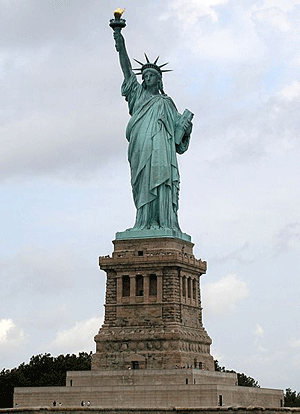
Image courtesy Elcobbola under the Creative Commons Attribution-Share Alike 3.0 Unported license.
http://www.viewzone.com/onstott66.html
Experimento Filadelfia
De Wikipedia, la enciclopedia libre
El Experimento Filadelfia, también llamado Proyecto Arcoíris, es el nombre que recibió un supuesto experimento secreto llevado a cabo por la marina estadounidense en los astilleros navales de Filadelfia, en el estado de Pensilvania, durante o antes del 28 de octubre de 1943. En el cual el destructor escolta de la Armada USS Eldridge al parecer fue invisibilizado (o "encubierto") electrónicamente contra los dispositivos enemigos. La marina de Estados Unidos comenta que ha buscado archivos que se refieran a este hecho y no los ha encontrado, ni ha encontrado evidencia de que se intentara.[cita requerida]
El incidente fue reportado repetidamente como una farsa.[1] [2] [3]
A finales de los años 30, el ingeniero eléctrico Nikola Tesla, afirmó[cita requerida] haber completado una teoría dinámica de la gravedad, que básicamente explica la gravedad como una mezcla de ondas electromagnéticas longitudinales y transversales. Estos razonamientos calaron hondo en un grupo de trabajo que experimentaba con los campos electromagnéticos en la Universidad de Chicago[cita requerida], donde se estaban iniciando las investigaciones sobre la posibilidad de la invisibilidad a través del uso de campos eléctricos y magnéticos. Este proyecto se habría trasladado en 1939 al Instituto de Estudios Avanzados de la Universidad de Princeton[cita requerida].
En un momento determinado, se afirmó haber conseguido la invisibilidad de pequeños objetos, con lo que se presentó al gobierno de los Estados Unidos.[cita requerida] Por lo que en el plano militar vieron el potencial de esta nueva tecnología y decidieron sufragar el curso de las investigaciones a fin de direccionarlas en el sentido que les convenía: su aplicación a la industria bélica. El USS Eldridge, es modificado para transportar toneladas de equipamiento electrónico, entre el que se incluirían dos enormes generadores de 75 kV cada uno, montados en el lugar que debería ocupar la torreta de cañones de proa, y que distribuían su potencia a través de cuatro bobinas montadas en cubierta. Tres transmisores RF de 2 megavatios cada uno, 3.000 tubos amplificadores 6L6 (empleados para canalizar los campos de las bobinas de los dos generadores), circuitos de sincronización y modulación... fueron empleados para generar campos electromagnéticos masivos que, correctamente configurados, serían capaces de curvar las ondas de luz y de radios alrededor del buque, haciéndolo invisible.
Las pruebas habrían empezado el verano de 1943, y hasta cierto punto tuvieron éxito al principio. Una prueba, el 22 de julio de 1943, volvió al USS Eldridge (DE-173) casi totalmente invisible, con algunos testigos reportando una "niebla verdosa" —sin embargo, algunos miembros de la tripulación se quejaron de náuseas posteriormente. En ese momento, el experimento fue alterado a petición de la Marina, con el objetivo de hacer al navío invisible a los radares únicamente.[cita requerida]
El equipo fue recalibrado y el experimento se llevó a cabo el 28 de octubre. Esta vez, el Eldridge no sólo se volvió totalmente invisible a la vista, sino que de hecho desapareció del área en un relámpago azul. Al mismo tiempo, la base naval estadounidense en Norfolk, Virginia, a 600 km de distancia, un tripulante en sus costas declaró haber visto al Eldridge durante 15 minutos, al final de los cuales desapareció, para volver a aparecer en Filadelfia, en sus coordenadas originales —supuestamente un caso accidental de teletransportación.[cita requerida]
Según el relato de Carlos Allende[cita requerida], los efectos fisiológicos en la tripulación fueron profundos. Mareos muy violentos, personal que desapareció por completo, otros que simplemente se volvieron locos o padecieron esquizofrenia severa, y lo más terrorífico fue el hallazgo de cinco miembros de la tripulación fundidos completamente con la estructura de metal de la proa del buque y otros tantos sufrieron desmaterializaciones de algunas partes de sus cuerpos. Supuestamente, los oficiales navales horrorizados cancelaron el experimento inmediatamente. Los supervivientes nunca fueron los mismos, y permanecieron en una suerte de amnesia total.[cita requerida]
Publicación de la historia[editar]
Los detalles de este experimento fueron revelados indirectamente.
Carl Allen/Carlos Allende[editar]
En 1955, K. Jessup, un astrónomo amateur, antes investigador postuniversitario, publicó The Case for the UFO, un examen del fenómeno del OVNI (UFO en inglés) en el que teorizaba los medios de propulsión que un platillo volador del estilo de un OVNI podría utilizar. Jessup especuló que la anti-gravedad o el electromagnetismo pueden ser responsables del comportamiento de vuelo observado en los OVNIs, y lamentó, tanto en el libro como en la publicidad del tour que siguió, que la investigación de los vuelos espaciales se concentrara en el área de los cohetes, y que se pusiera poca atención a otros medios teóricos de vuelo, que él consideraba rendirían más frutos al final.
El 13 de enero de 1956, Jessup recibió una carta de un hombre que se identificaba como "Carlos Miguel Allende". En ella, Allende informaba a Jessup del Experimento Filadelfia, aludiendo a artículos periodísticos de la época de fuentes dudosas como "prueba". Allende también decía haber sido testigo de la desaparición y reaparición del Eldridge mientras trabajaba en un barco mercante que se encontraba cerca, el SS Andrew Furuseth. Incluso mencionó los nombres de otros tripulantes del Andrew Furuseth, y decía saber del destino de algunos miembros de la tripulación del Eldridge tras el experimento, incluyendo uno que dice haber visto "desaparecer" durante una pelea en un bar. Jessup le respondió a Allende con una postal, pidiendo más evidencia y corroboración de la historia, tales como fechas y detalles específicos de la misma. La respuesta llegó varios meses más tarde; sin embargo, esta vez el hombre se identificaba como "Carl M. Allen". Allen dijo que no podría proveer los detalles pedidos por Jessup, pero insinuaba que podrían ser obtenidos a través de la hipnosis. Jessup decidió cortar la correspondencia.
EXPERIMENTO FILADELFIA=22 DE JULIO=DIA DE MARIA LA MAGDALENA
|
|
|
|
Réponse |
Message 16 de 27 de ce thème |
|

11 DE SEPTIEMBRE O SEPTIEMBRE 11
11/9 O 9/11
Sapientia Aedificavit Sibi Domum. Es decir, "la sabiduría ha edificado aquí su casa". Resulta curioso que la misma frase aparece en el Evangelio de María Magdalena, un texto apócrifo. Se dice que en el interior de esta iglesia y de otras muchas de Venecia está escondido el tesoro de los templarios. Pero no hay ninguna prueba de ello. Para terminar ya con esta entrada me gustaría que nos acercásemos un momento a uno de los edificios más emblemáticos de Venecia: el Palacio Ducal.

La Maddalena

La Maddalena

Tomb of Tommaso Temanza
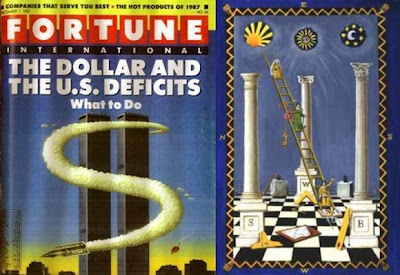
ISLA SAN GIORGIO (VENECIA)=GEORGE LEMAITRE
GEMATRIA EN INGLES DE SEED=33
GEMATRIA EN INGLES DE GATE=33
SARA (CE-SAREA DE FILIPO)=PARALELO 33
"¡Oh profundidad de las riquezas de la sabiduría (sophia)
y de la ciencia (gnwsiV, gnosis) de Dios!
¡Cuán incomprensibles son sus juicios, e inescrutables sus caminos!"
(Romanos, 11: 33).
 the Apple
| milky way in Simple Gematria Equals: 119 |
( |
m 13 |
i9 |
l 12 |
k 11 |
y 25 |
0 |
w 23 |
a1 |
y 25 |
) |
| queen mary in Simple Gematria Equals: 119 |
( |
q 17 |
u 21 |
e5 |
e5 |
n 14 |
0 |
m 13 |
a1 |
r 18 |
y 25 |
|
| hebrew calendar in Simple Gematria Equals: 119 |
( |
h8 |
e5 |
b2 |
r 18 |
e5 |
w 23 |
0 |
c3 |
a1 |
l 12 |
e5 |
n 14 |
d4 |
a1 |
r 18 |
| mary magdalene in Simple Gematria Equals: 119 |
( |
m 13 |
a1 |
r 18 |
y 25 |
0 |
m 13 |
a1 |
g7 |
d4 |
a1 |
l 12 |
e5 |
n 14 |
e5 |
|

|
|
|
|
Réponse |
Message 17 de 27 de ce thème |
|
|
|
|
Réponse |
Message 18 de 27 de ce thème |
|
Symbolic Meaning Of The Louvre, Paris France
I.M. Pei’s Louvre pyramid connects the vast wings of the museum to one central location. Most of the space is buried underground, keeping the visual attention on the historic palace.
Was Napoleon’s monument to freedom Elephant of the Bastille a factor in the design? Did astrology form the shapes and arrangement? Johann Kepler charted horoscopes using this same form, and related it to profound scientific laws. Gender is also seen by many in the upright and inverse pyramids. The Louvre, in the heart of Paris, fixes all the problems with Modernism. The shocking form fits in because it was derived by careful study and with thoughtful purpose.
A quick walk a modern obelisk, the Eiffel tower, leads to the Arc de Triumph, copied from ancient Rome. A straight line from there leads to an ancient Roman obelisk, and immediately to the Louvre.
|
|
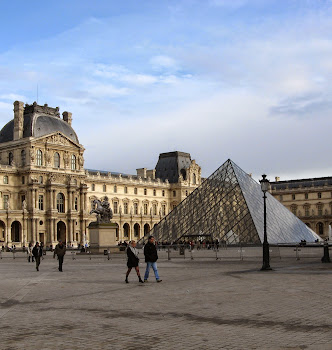 |
I.M. Pei’s 1989 design for the Pyramide du Louvre at the historic Louvre Palace in Paris France starts with architecture’s most significant symbol: the pyramid. A tunnel descends into structure like the ancient pyramids of Egypt.
The museum spans the entire history of mankind, and so the pyramid itself assumes a futuristic character. Its transparent materials achieve this futurism while opening views to the building surrounding it, and opening natural sunlight into the front lobby. A rather ingenious tension structure is holds the pyramid up.
The La Pyramide Inversée inverted pyramid has been made famous by the Da Vinci Code. But this is just one element of this enormous project, which takes more than a week to properly visit.
Procession To Democracy
| Pei’s concept sketches show two axis. The first runs through the park to the Arc de Triumph du Carrousel. Here it meets another tilted axis, which continues on into the Louvre. This Axe Historique is the strongest site axis in the world, extending through central Paris to the city’s modern quarter. |
|
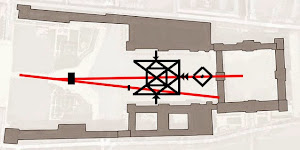 |

| This tilting of spaces at the Arc de Triumph and the pyramid keeps the composition unified yet unexpected.
In 1833, a column stood where the pyramid now stands. A third axis tilts slightly as it extends from this point on to the east. This third axis extended to the Place de la Bastillewhere a similar column was constructed in 1835 to commemorate the revolution against King Charles X.
The July column at the Place de la Bastille replaced the Elephant of the Bastille, which gives insight into the meaning of the Louvre pyramid. The Elephant was a large structure atop a fountain, which people could enter through a staircase and walk around inside, as with today’s Louvre pyramid. It was cast in bronze from the guns captured by Napoleon in his conquests. In Victor Hugo’s Les Miserable, it housed the homeless children of the Revolution. Run-down and despondant, it symbolized the humility and determination of democracy:
|
|
 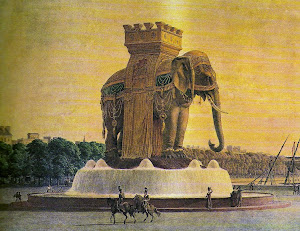 |
“There it stood in its corner, melancholy, sick, crumbling, surrounded by a rotten palisade, soiled continually by drunken coachmen; cracks meandered athwart its belly, a lath projected from its tail, tall grass flourished between its legs; and, as the level of the place had been rising all around it for a space of thirty years, by that slow and continuous movement which insensibly elevates the soil of large towns, it stood in a hollow, and it looked as though the ground were giving way beneath it. It was unclean, despised, repulsive, and superb, ugly in the eyes of the bourgeois, melancholy in the eyes of the thinker.” -Victor Hugo
The Statue of Liberty in New York is a modern descendant from the Elephant. Visitors walk into and climb a stairway up the Statue, much like in the Elephant. The Louvre Pyramid achieves the same kind of procession, and directly links to its axis in the city. It therefore could assume the symbol of the poor and humble class. The poor gain access to the wealth of the world in the museum. History and art liberates the people.
Astrology
| By 1850, the column in the courtyard was replaced by two circles. Pei’s early sketches start to resemble these two circles. Yet while the inverted pyramid keep a circular outline, the large pyramid is decidedly rectangular. Pei took a square and fit another square inside it. How did Pei get this geometric form? Astronomer Tycho Brahe built the Uraniborg observatory based on the classic chart of the four terrestrial elements. He applied the four states of the four elements (earth, fire, water, air) to the celestial sphere for the first time, asserting a new idea that stars are subject to change like anything else.
Tycho’s assistant, Johann Kepler applied this building form to astrology. His rectangular horoscope used tilted concentric squares that look very similar to Pei’s form at the Loure. If you lay the classic zodiac over the louvre pyramid, you can see how it fits.
Did Pei look at Kepler’s horoscope for the pyramid entrance to the Louvre? Compare the plan-view of the Louvre entrance with Kepler’s zodiac and the ancient astrology diagram:
|
|
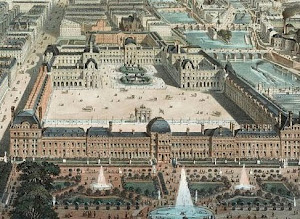  |
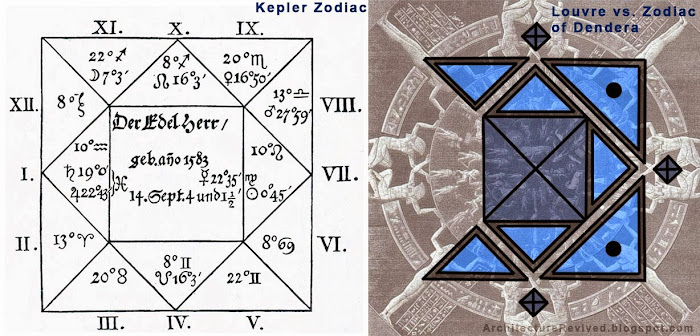
A 90 degree triangle approaches the pyramid from the left side. This T-square aspect pattern forms a trine, which is considered in astrology to be “a source of artistic and creative talent.” This is therefore an appropriate entrance to an art museum. The Louvre’s entrance forms a trine. The 120 degree trine in the musical scale indicates a perfect fifth step, which is the strongest relationship of notes in music. The sun moves almost exactly 120 degrees on the summer solstice in Paris.
| Kepler fit platonic solids inside each other. The tetrahedron was surrounded by the cube. More complex platonic shapes fit inside the tetrahedron, until finally they formed a sphere. This could be the background for Pei’s pyramid inside the Kepler square. The inverse pyramid fits inside a circle and the large pyramid inside a square.
Pei said he used a pyramid because it was “the most structurally stable of forms.”1 The pyramid is glass so that it is only barely seen, an intellectual suggestion.
|
|
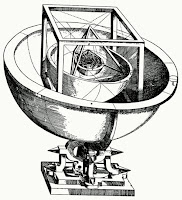 |
The large pyramid touches a line between the top of the historic palace and the inverse pyramid. Looking at it in plan view, the edge of the large pyramid touches lines between the ends of the palace and the center of the inverse pyramid. These lines of sight suggest calculus that is used to derive perfect solids. They are an intellectual manifestation of perfect forms.
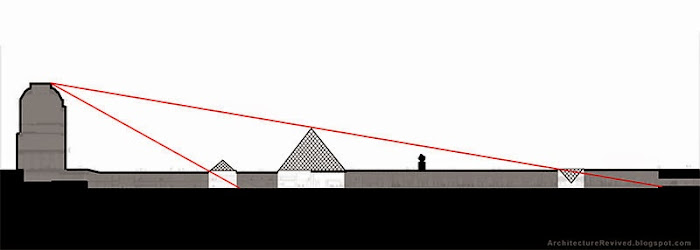
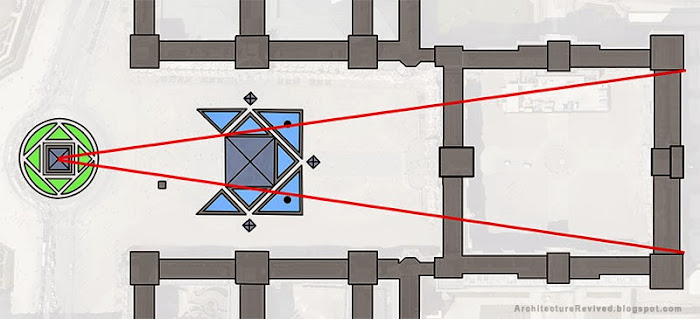
The pyramid and square could be based on Keppler’s laws of planetary motion. Kepler described the harmony of planets, music, poetry, etc. with proportions. Kepler’s third law, that the period of a planet’s orbit squared is proportional to the distance of the orbit cubed, describes the harmony of motion and distance. The pyramid volume is proportional to a line squared, and the cube volume is proportional to a line cubed.
The inverse pyramid’s proportion to its outer circle is the same as the earth’s proportion to the moon (27%). The large pyramid is likewise exactly 27% the width of the courtyard. The front entrance is half that distance from the front of the courtyard. Both pyramids thus relate the size of the moon to the size of the sun.
Kepler applied the mathematics of the perfect platonic solids to the epicycles of planets. Rejecting Ptolemic astronomy, Kepler declared that the earth revolves around the sun, and that the moon revolves around the earth, in elliptical orbits. He related these proportions to various things, such as the structure of the human eye. Indeed, if you overlay Kepler’s drawing of the eyeball over the Louvre, you see that the proportions line up. The Arc de Triumph aligns with the front of the cornea, the inverse pyramid with the lens, and the large pyramid with the front of the optic nerve. The hedges in the park even look like light rays approaching the eye from the left. This is because the harmonic proportions of the Louvre universally describe naturally occurring systems.
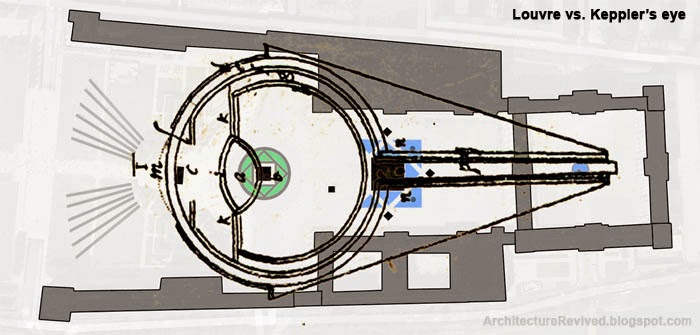
Golden Mean
The pyramid proportionally relates a system of objects, so it is no surprise that the golden mean is a basis for the pyramid’s size. The golden mean determines form and distance. The golden mean determines the pyramid’s size between the front and back, and the left and right of the courtyard. The statue of King Louis XIV, which is the endpoint of the park axis, aligns with this proportion. The golden mean also relates the inverse pyramid to the fountain edge.
The Louvre pyramid has the same slope as the Great Pyramid in Giza, at 51 degrees. The significance of the golden proportion in the Great Pyramid thus applies to the Louvre. It uses the golden proportion to achieve its form. The procession into the front, descending down into underground also follows the Great Pyramid in Giza.
The summer solstice sun crosses just inside the Arc de Triumph along the Axe Historique as it sets. The sun therefore is of vital importance in this site axis. The setting summer sun establishes a line of site between the statue of King Louis XIV with the inverse pyramid:
Gender
The circle is traditionally female and the square male. The inverse pyramid thus appears female while the larger upright pyramid is male. Many are aware that the Louvre is a metaphor for the chalice and blade. The chalice is the female aspect of creating life and is represented by an inverse pyramid. The blade is the male aspect of death and is represented by an upright pyramid. This metaphor is strengthened when you consider that the inverse pyramid is surrounding by living grass and the upright pyramid by fluid water. The Egyptians believed the waters of chaos must be crossed in the afterlife, and this is why they placed their funeral upright pyramids near the river Nile. Male/female relate to life/death and circle/square.
The entrance procession continues this gender language of circles and squares. The left spiral staircaseswirls in a circular motion, and on the right side a linear staircase descends in strict right angles. The Louvre’s free-standing staircase is a structural marvel, and its unrestrained circular motion was not easily achieved.
I think this gender symbolism is the most significant thing about the Louvre pyramid. Modernism seems intent on destroying all gender in our architectural language, yet here is a stark example of Modernism pushing ancient gender language. Its subtle power is the stuff of mystery novels, yet it is not really understood.
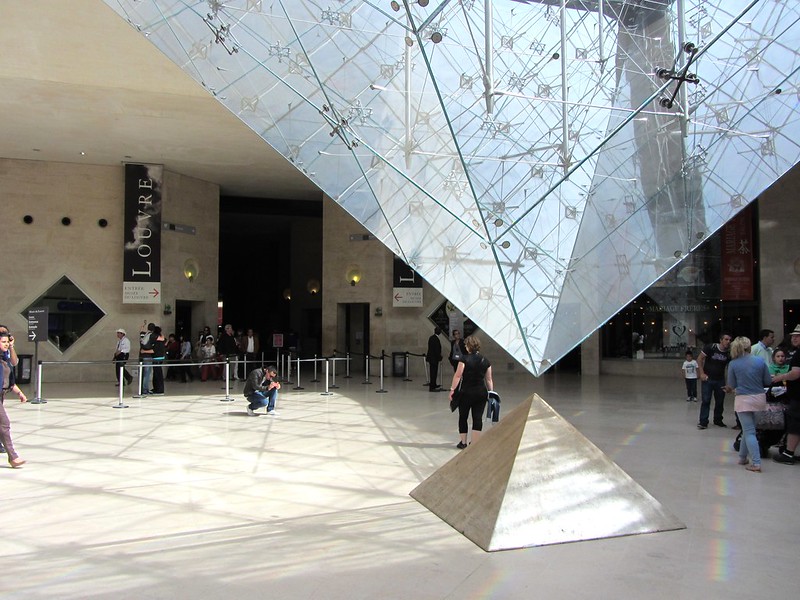
(rvr– flickr/creative commons license)
Life and death are investigated as the pyramid plays with the idea of above-ground and underground. The water fountains reflect the blue sky on the ground and suggests an inverse relationship. The clear pyramid allows light to fill the subterranean space. Then, at the inverse pyramid, everything flips upside down. The blue fountains take the form of blue sky and the transparent pyramid fills into the building. Rather than the building against a sky, it is the sky against the building. It touches a solid form, a small pyramid, a polar opposite to the unsubstantial sky. The roof of the Louvre palace can barely be seen from the inverse pyramid, a visual connection that brings this dichotomy all together.
This forces the visitor to investigate nature’s opposites. From Keppler’s investigation of natural systems, to perfect proportions, and natural opposite relationships, the Louvre makes the museum visitor investigate natural law.
Massimiliano Fuksas borrowed Pei’s concept of glazed sky intruding into building space. His MyZeil mall in Frankfurt swirls glazing around the public space.
More Info , More Info , Book
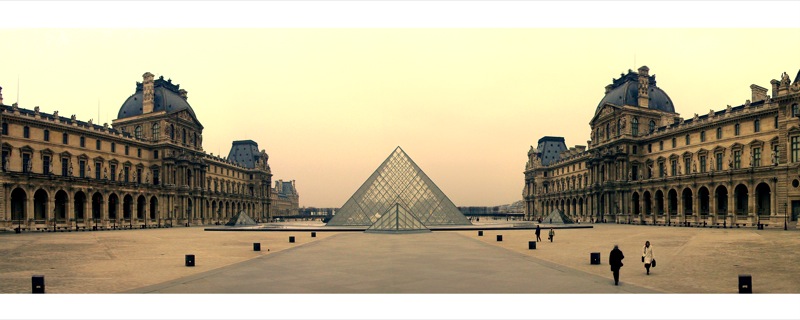
(tetraconz– flickr/creative commons license)
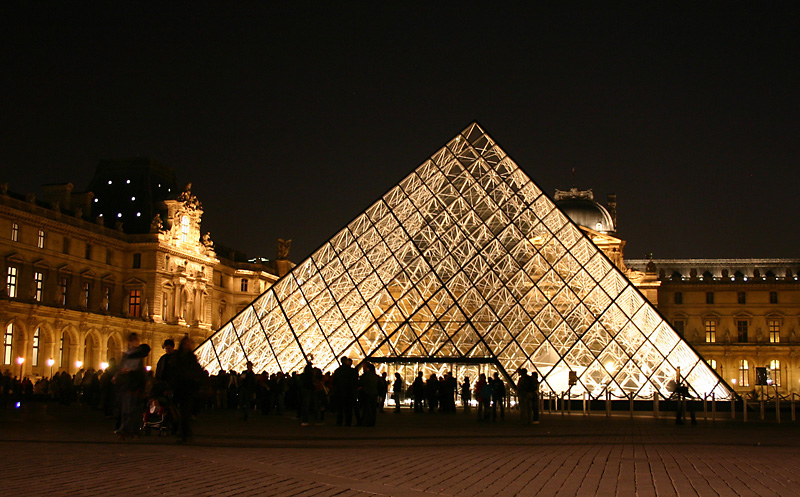
(Ivo Jansch– flickr/creative commons license)
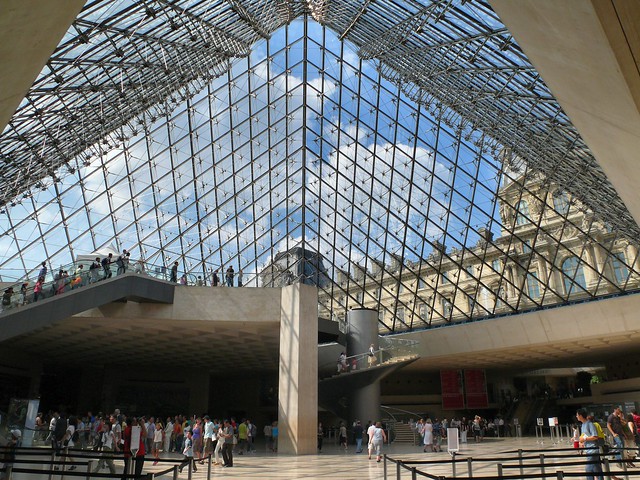
(dynamosquito– flickr/creative commons license)

(Carlton Browne– flickr/creative commons license)

(mariosp– flickr/creative commons license)

(mariosp– flickr/creative commons license)

(Guerretto– flickr/creative commons license)

(roryrory– flickr/creative commons license)

(genericface– flickr/creative commons license)
https://www.architecturerevived.com/symbolic-meaning-louvre-paris-france/ |
|
|
|
Réponse |
Message 19 de 27 de ce thème |
|
|
|
|
Réponse |
Message 20 de 27 de ce thème |
|
hace 3 días - Manipularon la historia a través de las fuentes de los textos en su lenguaje inventado llamado Latín, peeeeero no pudieron cambiar el ... Jose Alfonso Hernando ... la famosa batalla de Troya, y HASTA AHÍ NOS VAMOS PARA VER QUE ... “Las matemáticas nos hacen más libres y menos manipulables”.
hace 3 días - Principal / Valdeande Magico / ¡¡¡ Visitamos TROYES, donde fue la Guerra de Troya !!! ¡¡¡ Visitamos TROYES, donde fue la Guerra de Troya !!!
|
|
|
|
Réponse |
Message 21 de 27 de ce thème |
|
|
|
|
Réponse |
Message 22 de 27 de ce thème |
|


Eye within an interlocking circle and triangle
The 18th century church of Santa Maria della Maddalena (1763-90), better known simply as La Maddalena, was designed by the Venetian architect Tommaso Temanza (1705-89).
The entrance to the church is surmounted by the inscription SAPIENTIA AEDIFICAVIT SIBI DOMUM (Wisdom has built herself a home) and a curious image of an eye surrounded by an interlocking circle and triangle.
The all-seeing eye is one of the symbols of freemasonry and both the architect and the patron (a member of the Baffo family) of the church were freemasons.
Temanza's ashes are interred in La Maddalena.

La Maddalena

La Maddalena

Tomb of Tommaso Temanza https://www.picturesfromitaly.com/venice/freemasonry-and-the-church-of-santa-maria-della-maddalena-venice
 the Apple
|
|
|
|
Réponse |
Message 23 de 27 de ce thème |
|
|
|
|
Réponse |
Message 24 de 27 de ce thème |
|
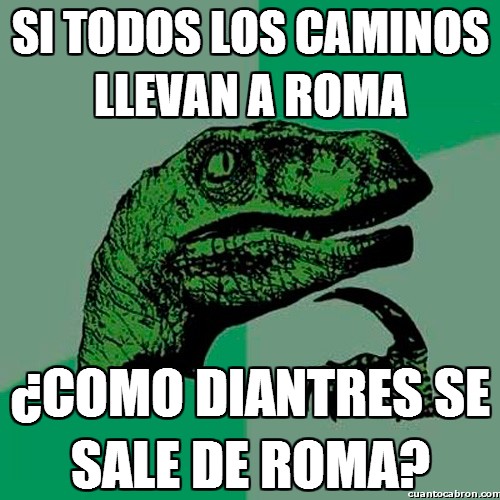

https://social.vcoins.com/twih/arch-constantine-july-25-315/
El Arco de Constantino. 25 de julio de 315.
El Arco de Constantino se erigió para conmemorar la victoria de Constantino I sobre Majencio en el Puente Milvio que tuvo lugar el 28 de octubre de 312.
La Batalla tomó su nombre del Puente Milvio , una ruta importante sobre el Tíber . Constantino ganó la batalla y emprendió el camino que lo llevó a terminar con la Tetrarquía y convertirse en el único gobernante del Imperio Romano . Maxentius se ahogó en el Tíber durante la batalla; su cuerpo fue luego sacado del río y decapitado, su cabeza desfiló por las calles de Roma al día siguiente de la batalla.
Según cronistas como Eusebio de Cesarea y Lactancio , la batalla marcó el comienzo de la conversión de Constantino al cristianismo . Eusebio de Cesarea cuenta que Constantino y sus soldados tuvieron una visión enviada por el Dios cristiano . Esto se interpretó como una promesa de victoria si el signo de Chi-Rho , las dos primeras letras del nombre de Cristo en griego , se pintaba en los escudos de los soldados. El Arco de Constantino, erigido en celebración de la victoria, ciertamente atribuye el éxito de Constantino a la intervención divina ; Sin embargo, el monumento no muestra ningún simbolismo abiertamente cristiano .
Aunque está dedicado a Constantino, gran parte del material decorativo incorporó trabajos anteriores de la época de los emperadores Trajano , Adriano y Marco Aurelio , y por lo tanto es un collage . El último de los arcos triunfales existentes en Roma, también es el único que hace un uso extensivo de la espolia , reutilizando varios relieves importantes de los monumentos imperiales del siglo II , que dan un llamativo y famoso contraste estilístico con la escultura recién creada para el arco .
Cualesquiera que sean las fallas de Maxentius, su reputación en Roma estuvo influenciada por sus contribuciones a la construcción pública . En el momento de su acceso al trono en 306, Roma se estaba volviendo cada vez más irrelevante para el gobierno del imperio, la mayoría de los emperadores eligieron vivir en otros lugares y se centraron en defender los frágiles límites , donde con frecuencia fundaron nuevas ciudades. Este factor contribuyó a su capacidad para tomar el poder. Por el contrario, Maxentius se concentró en restaurar la capital , siendo su epíteto conservator urbis suae (preservador de su ciudad). Así, Constantino fue percibido, entre otras cosas, como el deponente de uno de los mayores benefactores de la ciudad y necesitaba adquirir legitimidad. Mucha controversia ha rodeado el mecenazgo de las obras públicas de este período. El filósofo alemán Walter Benjamin observó que la historia se ve a través de los ojos del vencedor , y Constantino y sus biógrafos no fueron una excepción. Emitiendo una damnatio memoriae , se dispuso a borrar sistemáticamente la memoria de Majencio. En consecuencia, sigue existiendo una incertidumbre considerable con respecto al patrocinio de los edificios públicos de principios del siglo IV, incluido el Arco de Constantino, que originalmente pudo haber sido un Arco de Majencio .
 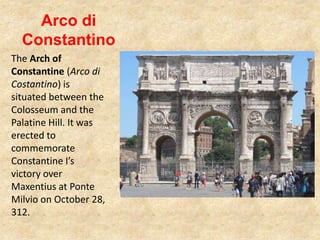    
|
|
|
|
Réponse |
Message 25 de 27 de ce thème |
|
|
|
|
Réponse |
Message 26 de 27 de ce thème |
|

July 25 Events in History
June 18, 2024
July 25th has witnessed a series of pivotal events that have shaped the course of history across various fields.
From groundbreaking achievements in aviation and medical science to significant political shifts and cultural moments, this day encapsulates a diverse array of historical milestones.
Join us as we explore some of the most notable occurrences on this date, delving into their impacts and legacies that continue to resonate today.
July 25th – On this Day in History
306 – Constantine I proclaimed Roman Emperor
On July 25, 306, Constantine the Great was declared Roman Emperor by his troops after the death of his father, Constantius Chlorus, in Eboracum (modern-day York, England).
This proclamation marked the beginning of Constantine’s reign, during which he would play a crucial role in shaping the future of the Roman Empire.
Also Read: July 24 Events in History
His subsequent policies and reforms, including the Edict of Milan in 313, which granted religious tolerance to Christians, had a lasting impact on both the empire and the Christian religion. Constantine’s rule laid the foundation for the Byzantine Empire and the spread of Christianity throughout Europe.
315 – Arch of Constantine inaugurated in Rome
The Arch of Constantine, one of Rome’s most famous monuments, was inaugurated on July 25, 315. Erected to commemorate Constantine I’s victory over Maxentius at the Battle of the Milvian Bridge in 312, the arch stands near the Colosseum.
It is a triumphal arch adorned with sculptures and reliefs that celebrate Constantine’s victory and his consolidation of power.
The arch not only served as a political symbol of Constantine’s authority but also showcased the artistic and architectural styles of the time, incorporating elements from earlier monuments to glorify the emperor’s achievements.
1261 – Constantinople recaptured by Nicaean forces, ending the Latin Empire
On July 25, 1261, forces from the Empire of Nicaea recaptured Constantinople, ending the Latin Empire established by the Fourth Crusade in 1204. This event marked the restoration of the Byzantine Empire under Emperor Michael VIII Palaiologos.
Also Read: July 26th – On this Day in History
The recapture of the city was a significant turning point, as it restored Byzantine control over its historic capital. However, the empire never fully recovered its former power and prestige, struggling against internal strife and external threats until its eventual fall to the Ottoman Turks in 1453.
1593 – Henry IV of France converted from Protestantism to Catholicism
On July 25, 1593, Henry IV of France converted from Protestantism to Catholicism, famously stating, “Paris is well worth a mass.” This pragmatic decision was made to secure his position as king and bring peace to a country torn apart by religious wars.
His conversion helped to end the French Wars of Religion, a series of conflicts between Catholics and Huguenots (French Protestants), and paved the way for the Edict of Nantes in 1598, which granted religious tolerance to Protestants.
Henry IV’s reign brought stability and prosperity to France and earned him the nickname “Good King Henry.”
1759 – French defeated at the Battle of Ticonderoga in the Seven Years’ War
On July 25, 1759, during the Seven Years’ War, British forces under General Jeffrey Amherst captured the French stronghold of Fort Carillon (later renamed Fort Ticonderoga) in present-day New York. This victory was part of a larger campaign to gain control over the strategic waterways of North America.
The fall of Ticonderoga marked a turning point in the war in favor of the British, who sought to expand their colonial territories at the expense of the French. The victory opened the way for further British advances into Canada and played a significant role in shaping the future of North America.
1797 – Horatio Nelson lost more than 300 men and his right arm during the failed conquest of Tenerife
On July 25, 1797, British Admiral Horatio Nelson led an attack on Santa Cruz de Tenerife in the Canary Islands during the French Revolutionary Wars. The expedition aimed to capture the strategic port, but it ended in failure.
During the battle, Nelson sustained a severe wound, resulting in the amputation of his right arm. Despite this setback, he displayed remarkable resilience and continued his naval career, eventually becoming one of Britain’s greatest naval heroes. This event highlighted his determination and contributed to his legendary status.
1814 – War of 1812: Battle of Lundy’s Lane, one of the bloodiest battles of the war, takes place
The Battle of Lundy’s Lane, one of the bloodiest battles of the War of 1812, took place on July 25, 1814, near Niagara Falls. American and British forces clashed in a fierce and indecisive engagement that lasted well into the night.
Despite high casualties on both sides, neither could claim a decisive victory. The battle demonstrated the intensity of the conflict along the Canadian-American border and underscored the strategic stalemate that characterized much of the war. It also highlighted the valor and resilience of both American and British troops.
1837 – First commercial use of an electric telegraph
On July 25, 1837, the first commercial use of an electric telegraph took place, marking a significant advancement in communication technology.
Developed by William Fothergill Cooke and Charles Wheatstone in England, the telegraph revolutionized long-distance communication by transmitting messages through electrical signals over wires.
This innovation laid the groundwork for the global telecommunications industry, transforming how information was shared and playing a crucial role in commerce, journalism, and personal communication.
1861 – Congress passed the Crittenden-Johnson Resolution, stating the Civil War was fought to preserve the Union, not to end slavery
On July 25, 1861, the United States Congress passed the Crittenden-Johnson Resolution, asserting that the ongoing Civil War was being fought to preserve the Union, not to interfere with slavery. This resolution aimed to maintain the loyalty of the border states and reassure Northerners who were concerned about the war’s purpose.
However, as the war progressed, the focus shifted increasingly towards the abolition of slavery, especially after the issuance of the Emancipation Proclamation in 1863. The resolution reflects the complex and evolving motivations behind the Union’s war effort.
1866 – Ulysses S. Grant became the first General of the Army
On July 25, 1866, Ulysses S. Grant was appointed as the first General of the Army, a newly created rank in the United States military.
This appointment recognized Grant’s leadership and success as a Union general during the Civil War, particularly his role in key victories at battles such as Vicksburg and Appomattox.
As General of the Army, Grant oversaw the post-war military and played a significant role in Reconstruction efforts. His leadership and strategic acumen contributed to his later election as the 18th President of the United States.
1898 – United States invades Puerto Rico during the Spanish-American War
On July 25, 1898, during the Spanish-American War, American forces led by General Nelson A. Miles invaded Puerto Rico. This military action was part of a larger campaign against Spanish colonial rule in the Caribbean and the Pacific. The invasion was relatively swift, facing limited resistance from Spanish troops.
The conflict resulted in the Treaty of Paris, which ceded Puerto Rico, Guam, and the Philippines to the United States, significantly expanding American influence and marking a turning point in U.S. imperialism.
1909 – Louis Blériot makes the first flight across the English Channel in a heavier-than-air machine
On July 25, 1909, French aviator Louis Blériot made history by becoming the first person to fly across the English Channel in a heavier-than-air aircraft. He piloted his Blériot XI monoplane from Calais, France, to Dover, England, covering the distance in about 37 minutes.
This achievement demonstrated the potential of aviation and marked a significant milestone in the development of powered flight. Blériot’s successful crossing captured the public’s imagination and paved the way for future advancements in aviation technology and commercial air travel.
1917 – Mata Hari sentenced to death for espionage
On July 25, 1917, the renowned dancer and courtesan Mata Hari was sentenced to death by a French military court for espionage during World War I.
Accused of spying for Germany, she was portrayed as a dangerous femme fatale, although the evidence against her was largely circumstantial.
Her trial and execution highlighted the paranoia and fear of espionage that pervaded wartime Europe. Mata Hari’s story has since become legendary, symbolizing the intrigue and moral complexities of espionage during the war.
1943 – Benito Mussolini dismissed as Italian premier; arrested
On July 25, 1943, Italian dictator Benito Mussolini was dismissed from power by King Victor Emmanuel III and subsequently arrested.
This event marked a turning point in World War II, as Mussolini’s downfall signaled the collapse of the Fascist regime in Italy. It also led to Italy’s eventual surrender to the Allies.
The dismissal was influenced by military defeats and widespread dissatisfaction with Mussolini’s leadership. His arrest set the stage for a period of political turmoil in Italy and a shift in the balance of power in the war.
1956 – Suez Crisis: Egyptian President Nasser nationalized the Suez Canal
On July 25, 1956, Egyptian President Gamal Abdel Nasser nationalized the Suez Canal, previously controlled by British and French interests. This bold move aimed to fund the construction of the Aswan High Dam and assert Egypt’s sovereignty.
The nationalization led to the Suez Crisis, where Britain, France, and Israel launched a military intervention to regain control of the canal. The crisis highlighted the waning influence of European colonial powers and the rising importance of Middle Eastern geopolitics during the Cold War. It also marked a significant moment in the decolonization movement.
1965 – Bob Dylan controversially used electric instruments at the Newport Folk Festival
On July 25, 1965, Bob Dylan performed with an electric band at the Newport Folk Festival, marking a significant shift in his musical style. This performance was controversial, as Dylan was primarily known for his acoustic folk music.
The audience’s reaction was mixed, with some embracing the new sound and others feeling betrayed. This moment is often seen as a pivotal point in rock music history, symbolizing the merging of folk and rock genres and highlighting Dylan’s evolving artistry.
1978 – Birth of Louise Brown, the first test-tube baby
On July 25, 1978, Louise Brown, the world’s first baby conceived through in vitro fertilization (IVF), was born in England. Her birth marked a groundbreaking achievement in reproductive technology, offering hope to millions of couples struggling with infertility.
The successful use of IVF opened new possibilities for assisted reproductive treatments and sparked discussions about the ethical and social implications of such technologies. Louise Brown’s birth is celebrated as a milestone in medical science.
1984 – Cosmonaut Svetlana Savitskaya became the first woman to perform a spacewalk
On July 25, 1984, Soviet cosmonaut Svetlana Savitskaya became the first woman to perform a spacewalk. During her mission aboard the Salyut 7 space station, she conducted an extravehicular activity (EVA) that lasted nearly four hours.
This achievement not only highlighted her skills and bravery but also underscored the contributions of women in space exploration. Savitskaya’s spacewalk was a significant step forward for gender equality in the field of astronautics.
1994 – Israel and Jordan sign the Washington Declaration, formally ending the state of war
On July 25, 1994, Israel and Jordan signed the Washington Declaration, officially ending the state of war between the two nations. This agreement was a crucial step towards peace in the Middle East, facilitated by the United States.
It laid the groundwork for the Israel-Jordan Peace Treaty later that year, fostering improved diplomatic and economic relations. The declaration represented a significant move towards regional stability and cooperation.
2000 – Air France Flight 4590 crashes on takeoff in Paris, killing 113
On July 25, 2000, Air France Flight 4590, a Concorde supersonic airliner, crashed shortly after takeoff from Charles de Gaulle Airport in Paris. All 109 passengers and crew on board, along with four people on the ground, were killed.
The crash was caused by a strip of metal left on the runway by another aircraft, which led to a tire explosion and subsequent fuel tank rupture. This tragic event marked the beginning of the end for the Concorde program, highlighting safety concerns and contributing to the aircraft’s eventual retirement in 2003.
https://www.havefunwithhistory.com/july-25/ |
|
|
 Primer Primer  Anterior 2 a 2 de 2 Siguiente Anterior 2 a 2 de 2 Siguiente  Último Último  |
|
|
|
|
Réponse |
Message 27 de 27 de ce thème |
|
|
|
 Premier Premier
 Précédent
13 a 27 de 27
Suivant Précédent
13 a 27 de 27
Suivant
 Dernier
Dernier

|






















